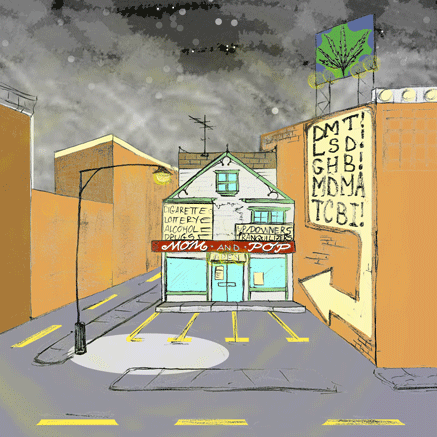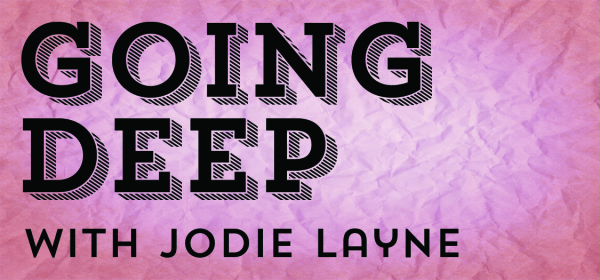Commanding a majority of the seats in the House of Commons, and with the already-established support of the courts, there is no reason the incoming Liberal government cannot make good on its promise to legalize, tax, and regulate the sale of marijuana. The ending of the prohibition on marijuana is the proper time to reconsider our society’s stance on other drugs as well.
Many drugs, like marijuana, are not illegal because they are inherently addictive or harmful – the arguments put forward as justification for the legalization of marijuana apply to them also. There is no reason (other than the weight of tradition and old attitudes) that a significant part of currently outlawed substances cannot be legalized, taxed, and sold.
Tobacco is the example par excellence of a reasonable drug model. Those who choose to use it are free to do so. Those who choose not to use it are free to do so. Its sale is prohibited to minors and tobacco smoke is outlawed in places where it would be a nuisance. Whatever you might think of smokers and smoking, it‘s a model that works for pretty much everyone, including the government, which derives ample revenue through taxation.
Alcohol is another example of a drug that is regulated and integrated into society, and one that bears particular importance when discussing the reasons for keeping drugs illegal. Alcohol is addictive, and in large amounts severely impairs the judgement of the user to the degree that they are more likely to harm themselves or others, and are a minor threat to society as a whole.
But we accept that the majority of people can responsibly consume alcohol; the issue is not alcohol itself, but people who use it inappropriately. For the sake of safeguarding our individual right to get drunk (which is nothing more or less than altering your state of mind, as all drugs do), we accept a small social burden of alcoholics and drunk drivers.
Once legal, marijuana will be much like tobacco and alcohol; there will certainly be people who abuse it, or use it in inappropriate situations. But these are the same people who drive drunk – the problem is them, not the drug. The situation will actually be better than those two drugs, as marijuana does not make people violent as alcohol can, and its smoke is less harmful than that of tobacco.
Caffeine is an extremely commonly consumed drug that is not only addictive, but completely unregulated. It is neither better nor worse than other drugs – it is merely accepted for what is, and serves as proof that although government regulation may be desirable for some drugs, it is not really necessary.
The experience in places quite similar to Canada – Colorado, for instance – has been that once marijuana is legalized, it is absorbed into society with surprising ease (its use is already widespread, legal or not), and many positive effects, such as a reduction in violent crime, follow. It is also important to note that, with a natural alternative available, many more harmful chemicals, such as antidepressants, will become less attractive. All things being equal, people will choose the drug that works for them, and self-medicate.
Marijuana is grouped with the likes of caffeine and nicotine, all plants. It is a form of madness peculiar to our present society that we believe in the justice of laws which would forbid a plant growing from seed. The consumption of plants being illegal makes a mockery of the splendour of the natural world, of which we are all a part, and to which we owe our lives. We can choose for ourselves to consume or not consume a plant, but it is playing God to dictate to others which plants they may or may not consume. If our lawmakers declared citric acid a vice, and outlawed oranges, what would you think of that law?
Not all drugs, of course, are derived from plants, and many that are bear no resemblance in the final form consumed to the seed which germinates. The drug prohibition is just that – a prohibition on drugs, in which plants are a not-infrequent legal casualty.
Drugs synthesized by humans are newer than plant-drugs, with a shorter history of use. Marijuana has been used for 5,000 years; LSD has been used for about 75. But whatever the history of use, the reason remains the same: people take a drug for the specific effects it produces in the mind. Synthetic drugs are frequently more powerful and less unpredictable (some say they have less “personality”) than plant-drugs. They are also, relatively speaking, more dangerous.
If that seems like tacit support for harsher control of synthetic drugs, it isn’t. Gasoline is more dangerous than water, but only if you’re an idiot – or if someone tells you that a jerry can is full of water when it’s full of gasoline. Because synthetic drugs are pure chemicals, and because they must be manufactured and sold illegally, purity is always an issue. Mistaken assumptions about purity and chemical content, leading to unintentional overdoses which can be avoided in legally regulated substances, are an unnecessary risk imposed by the current prohibition. Legalized and regulated, this risk would decrease – at least for appropriately cautious individuals. The most dangerous drugs would become safer.
I do not advocate a pusher on every corner, tricking unsuspecting children into getting hooked on addictive substances. But for a variety of reasons, adults may want to avail themselves of the specific effects that drugs can offer. If it helps, think of antidepressants; it might be nice if no one resorted to chemical happiness, but that’s really a choice we should leave up to depressed people. Antidepressants are addictive – they can do harm, as well as good. Substances currently illegal are no different, except that their effects are pleasant and sought after, rather than merely negating depression.
Choice
It comes down to a freedom of conscience – and of consciousness. If mature adults want to temporarily alter their state of mind – and expand their consciousness through that – what moral argument exists to counter their right to do so? Drugs as a general category are not as addictive and dangerous as we are told by people like Stephen Harper, who said without blushing that marijuana was “infinitely worse than tobacco.” Two of the worst drugs out there, in terms of harm and addiction potential, are alcohol and tobacco, and our society isn’t collapsing because of them.
As we move towards the legalization of marijuana, we should remember the other drugs consigned to the margins of our society. Benign or harmful, I do not believe that anyone save the individual has a right to dictate what they consume, or choose which lens they view existence through. Whether it’s LSD for spiritual knowledge or heroin because life sucks, so long as you’re not impeding the flow of traffic, who am I (or anyone else) to judge, let alone forbid?




